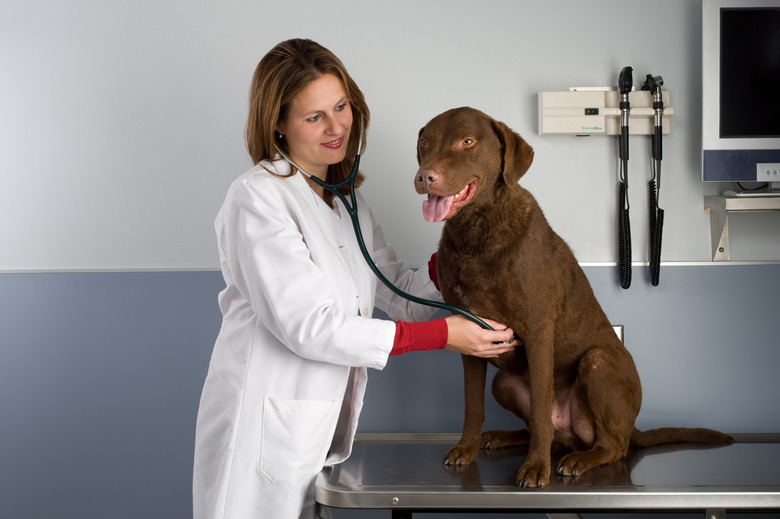Red Sores On The Belly Of A Dog
When red sores appear on your dog's belly, they're sure to be a cause of concern for you — and possibly an itchy or painful irritant for your pup. Rest assured, many kinds of sores have benign explanations and simple treatments. However, sores that get worse, get infected or are accompanied by other physical symptoms need prompt vet attention.
Insect Bites
Insect Bites
When dogs are outside, their bellies are often in contact with the ground or tall brush, making them susceptible to bug bites. Ticks, mites, chiggers, spider bites, and bee and wasp stings all can leave raised, red, itchy welts behind. If your dig licks or nips at the bites to scratch the itching, he could open the surrounding skin and create an open sore that's susceptible to infection. Reduce the potential for bug bites by using a flea and tick collar on your dog, and avoid letting him roam in areas with tall grass and weeds. Wash the sore spots gently with an antibacterial soap and pat dry. Ask your vet about using a topical cortisone cream to relieve itching; watch for signs of infection, such as inflammation or pus drainage. If your dog keeps picking at the sores, consider an Elizabethan collar to curb overzealous licking.
Chemical and Allergen-Producing Irritants
Chemical and Allergen-Producing Irritants
Your dog can develop welts or sores if he comes in contact with a chemical irritant that he's sensitive to. This could be a household cleaning product or an outdoor insecticide or plant, and various other materials and substances. Treat the sores like you would insect bites, and try to identify and eradicate the cause of the problem. Your vet will be invaluable in determining what's causing the lesions. Your vet may recommend an antihistamine as well as a topical anti-itch cream. Make sure all of the chemicals that you use in your home are pet-friendly, to protect against a recurrence.
Impetigo and Folliculitis
Impetigo and Folliculitis
Folliculitis is a bacterial infection that can develop if your dog creates sores out of scratches, bug bites or other minor open or irritating wounds. Signs of folliculitis include welts or sores. Fluid-filled blisters on the stomach can signal a disorder more commonly found in puppies than in adult dogs — impetigo. Your vet will likely prescribe a topical antibacterial ointment or special shampoo to treat both conditions. He may prescribe an oral antibiotic for more severe cases.
Other Issues
Other Issues
Open sores on a dog can signify parasitic infection, immune system disorder, hot spots, mange or even a severe tick or flea problem. A sore with a lump could be a tumor or cyst that needs attention. If your pup has other physical symptoms that cause alarm — such as lethargy, poor appetite, vomiting or bloody stool — call your vet for an appointment
Always check with your veterinarian before changing your pet's diet, medication, or physical activity routines. This information is not a substitute for a vet's opinion.
